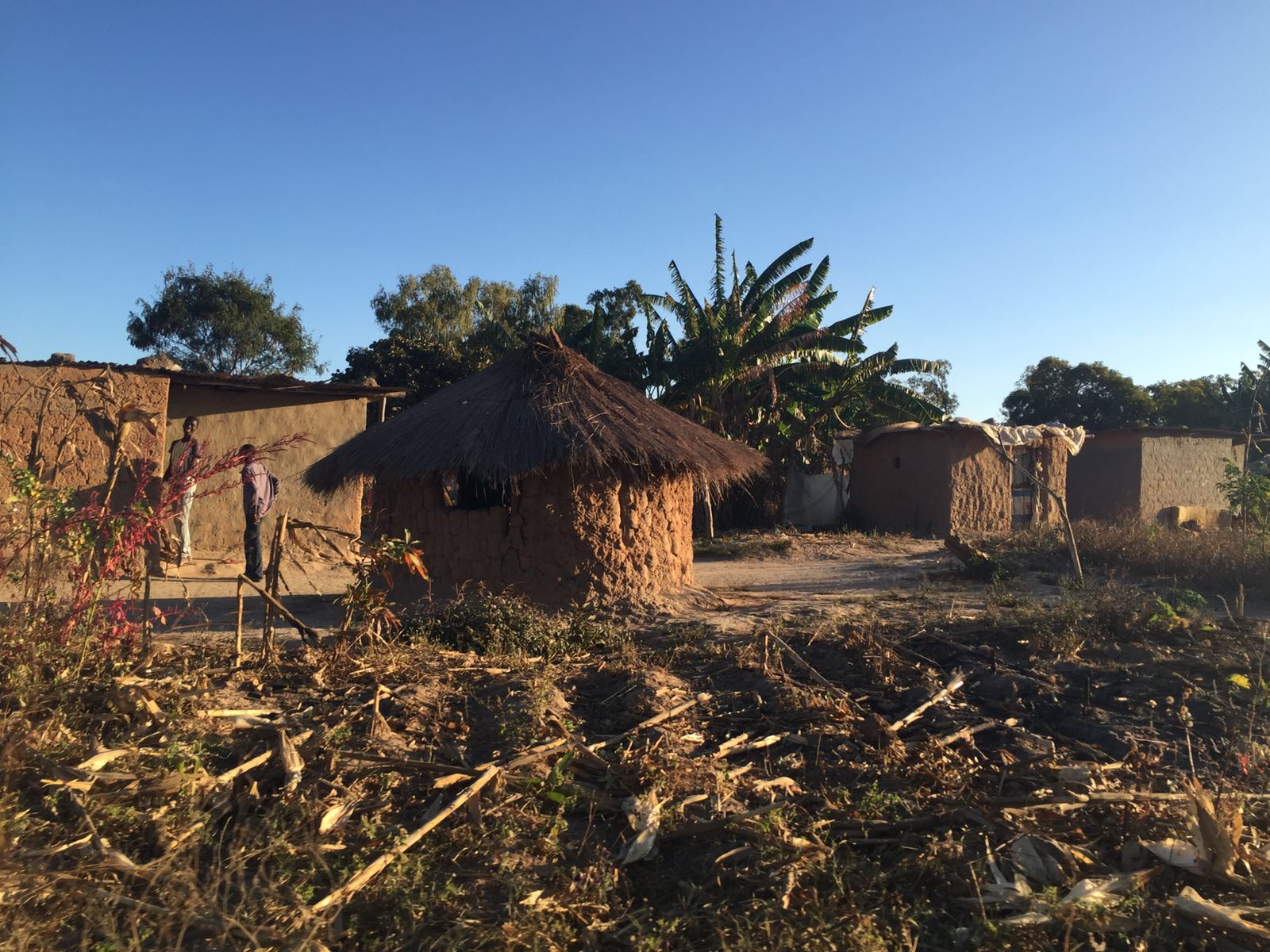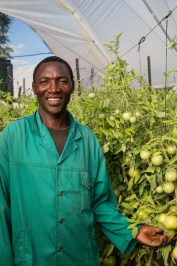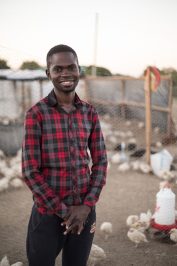From Cranfield to Zambia: the Cranfield MBA meets the Zambian Agribusiness Incubation Trust…
16/06/2016

Snapshot of Cranfield MBA Zambia International Business Assignment
Lily, Manish and I are three of 24 Cranfield MBA students currently in Zambia working with local businesses to benefit their strategic direction and growth. Our hosts for the week are AgBit (Zambian Agribusiness Incubation Trust), who we’re quickly learning are one of the most ambitious and inspiring agribusinesses around. In short, they provide two key services: training in key skills for smallholder farmers, enabling them to shift from subsistence to profitability, and incubation of start-up businesses in the agricultural sector. To date they’ve been highly successful and today we spoke with one of their trainee farmers, Charles, and a recent ‘incubatee’ graduate, Martin, now operating his own chicken enterprise.
Charles
 Charles came from his village in Chongwe, approximately 20km from Lusaka, to train at AgBit in a variety of farm enterprise management techniques. He was elected by his community to spend 6 months on the programme, after which he will return home and continue to train farmers with all he’s learned. He lives at AgBit during the week, heading home on weekends to his family, including his 6 children!
Charles came from his village in Chongwe, approximately 20km from Lusaka, to train at AgBit in a variety of farm enterprise management techniques. He was elected by his community to spend 6 months on the programme, after which he will return home and continue to train farmers with all he’s learned. He lives at AgBit during the week, heading home on weekends to his family, including his 6 children!
When Charles arrived at AgBit he was a subsistence farmer. All food produced by his community was consumed within it, with a bartering system in operation for any additional goods required. After 4 months at AgBit under the careful guidance of Brian, Maxwell and Augustine, Charles articulates with great passion the change that he has experienced through gaining knowledge. In his own words “I did not know that money could be made from these things (tomatoes)! Now, because of AgBit, I can make money and build a school in my community. I can build a health centre. I will not worry about medicine for my children any more. I can grow high value crops; crops I did not even know about! I have learned that farming is a business, and I no longer call myself a farmer; I call myself a businessman”.
Martin
 Martin arrived at AgBit after completing a Diploma in Business Management in Lusaka. While there were opportunities available to him in the business sector, his innate sense of entrepreneurialism won out, leading him to submit a business plan to AgBit to secure a spot on their start-up incubation programme. His application was successful, and Martin, in partnership with his brother, has not looked back since.
Martin arrived at AgBit after completing a Diploma in Business Management in Lusaka. While there were opportunities available to him in the business sector, his innate sense of entrepreneurialism won out, leading him to submit a business plan to AgBit to secure a spot on their start-up incubation programme. His application was successful, and Martin, in partnership with his brother, has not looked back since.
Martin’s enterprise began as one supplying indigenous varieties of chicken to the local Lusaka market in the form of day-old hatchlings, broilers and fertilised eggs. He recognised the market need for organic, Zambian-grown chicken and set about creating an enterprise to meet that market. From an initial business plan, to completing the incubation process with AgBit, Martin has come a long way and in 2015 became the African ‘Incubatee’ of the year, beating competitors from across all industries in Nairobi to take home the US$10,000 cash prize. Martin has ploughed all that cash straight back to the business, purchasing key assets, and from mid-2016 is expecting a monthly turnover of US$2,000. Martin has passion for what he does, thinks in the long term, and uses his sharp entrepreneurial sense to seek out opportunities that bring growth to his family and community.
Just one day…
A single day spent with AgBit here in Lusaka has given me a million reasons to come back to Zambia. AgBit itself is exactly the type of organisation African countries need to be able to drive sustainable business growth, and ensure food security for this continent and the world. My passions lie in all of these areas, and I’m ecstatic to experience Zambian agri-entrepreneurship through the Cranfield MBA. Zambian farmers may be small-holders but they’re big in heart and even bigger in spirit.
—
About the Cranfield MBA International Business Assignment
As part of the Cranfield MBA students undertake an international business assignment, designed to provide an opportunity to place their learning in the context of a global perspective by visiting a foreign country and a number of organisations within it. It’s an opportunity to explore issues around diversity, sustainability and corporate responsibility as they affect organisations and society in the host country.
Categories & Tags:
Leave a comment on this post:
You might also like…
Keren Tuv: My Cranfield experience studying Renewable Energy
Hello, my name is Keren, I am from London, UK, and I am studying Renewable Energy MSc. My journey to discovering Cranfield University began when I first decided to return to academia to pursue ...
3D Metal Manufacturing in space: A look into the future
David Rico Sierra, Research Fellow in Additive Manufacturing, was recently involved in an exciting project to manufacture parts using 3D printers in space. Here he reflects on his time working with Airbus in Toulouse… ...
A Legacy of Courage: From India to Britain, Three Generations Find Their Home
My story begins with my grandfather, who plucked up the courage to travel aboard at the age of 22 and start a new life in the UK. I don’t think he would have thought that ...
Cranfield to JLR: mastering mechatronics for a dream career
My name is Jerin Tom, and in 2023 I graduated from Cranfield with an MSc in Automotive Mechatronics. Originally from India, I've always been fascinated by the world of automobiles. Why Cranfield and the ...
Bringing the vision of advanced air mobility closer to reality
Experts at Cranfield University led by Professor Antonios Tsourdos, Head of the Autonomous and Cyber-Physical Systems Centre, are part of the Air Mobility Ecosystem Consortium (AMEC), which aims to demonstrate the commercial and operational ...
Using grey literature in your research: A short guide
As you research and write your thesis, you might come across, or be looking for, ‘grey literature’. This is quite simply material that is either unpublished, or published but not in a commercial form. Types ...






